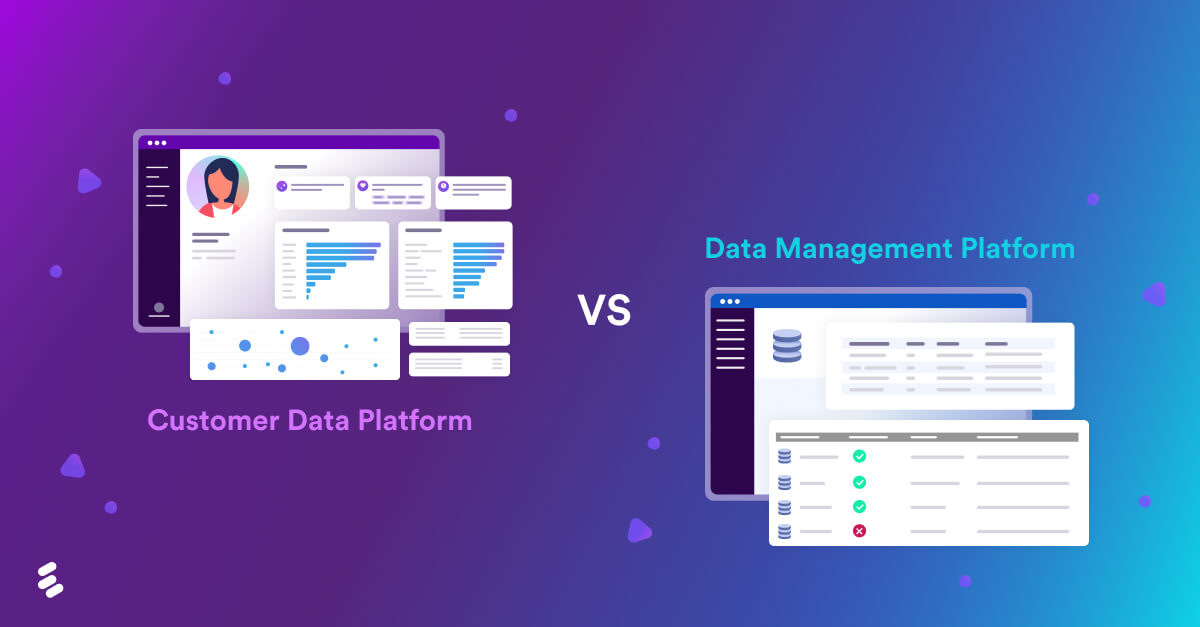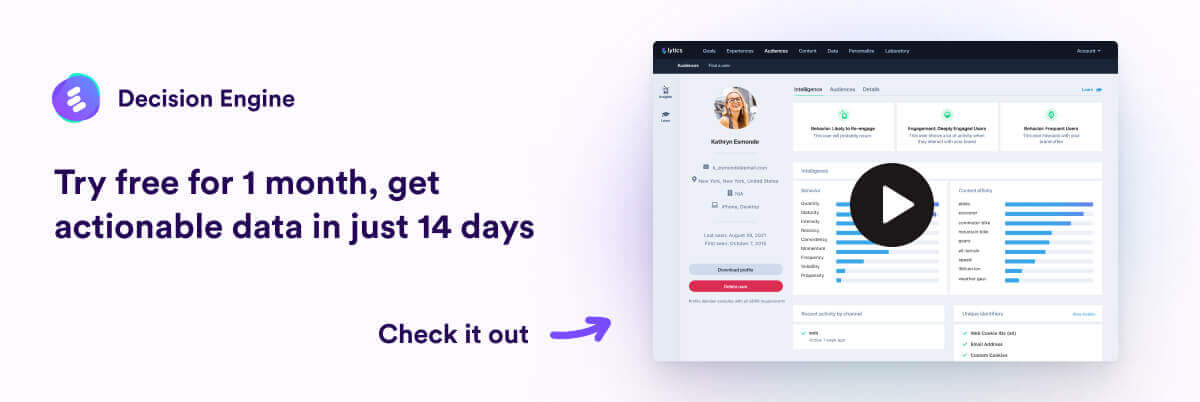The difference between a Customer Data Platform and a Data Management Platform
March 2, 2022

The business of data – its management, collection, storage and analysis is in constant flux.
Companies are choosing data-related solutions carefully as data storage costs and the issues associated with data sprawl are brought to the forefront. Data distribution across too many solutions has proven ineffective for many enterprises. A full 88 percent of surveyed stakeholders admitted such widely distributed data sources and silos form a barrier to streamlining data strategy.
Unfortunately, not all data sprawl is avoidable, especially when third party data sources provide information as meaningful and important to strategy development as first party data.
Proper data management tooling provides the answer many organizations are seeking, but what kind of tools are best for your business? Both customer data platforms and data management suites can be helpful for your business, but you’ll need to know what makes each unique before you choose which to use. So, this post talks about CDP and DMP differences and which is better tailored to your business needs.
The role of data in digital marketing
Big data has evolved from being a mere trend in marketing to serving as the cornerstone for most of the industry. The reason for this is simple: data helps businesses make informed advertising decisions. Whether you need to improve targeting to reach your intended audience or tweak your marketing strategy to make your offer more likely to convert people into paying customers, data can play a pivotal role in success.
The data your company depends on can come from all kinds of sources, including website analytics, social media information, email lists, and surveys. As data sources become more diverse, it pays to put a proper system in place to handle the inflows more efficiently and improve the overall utility of your digital marketing strategy.
What is a data management platform?
A data management platform or DMP is designed to streamline data collection, organization, and assessment across a multitude of unique sources.
All manner of data types can be handled by many DMPs, so long as they don’t contain personally identifiable information. Demographics data, web browsing habits, geographical location and other informative bits of consumer intel can be harvested and handled with relative ease using a DMP.
This enables companies to further refine their approach to customer interactions and service design.
You can use a data management platform to personalize user experiences across touchpoints in your organization. This makes for more effective marketing campaigns.
In addition to this, you can also leverage this type of platform to work with data pulled from beyond your organization just as easily. These types of platforms make it possible for you to share your own first party data with third parties more efficiently.
What is a customer data platform?
A customer data platform or CDP collects customer information across multiple channels the same way a DMP does.
Where the two differ is in what they do with this data. A DMP helps with collection, analysis and distribution of data, but isn’t equipped to do much of the heavy lifting involved in connecting data points across sources to form full-featured customer profiles. This comes down to a DMPs reliance on non-personally identifiable information.
CDPs collect personally identifiable information from your company’s internal sources like transactions and email lists and integrate this information into your customers’ profiles.
This allows companies to compile a powerful store of behavioral data that service and product decisions can be based on for better results.
But which is better, DMP or CDP?
Data management platform vs. customer data platform
You might be wondering which is a better option for your business, CDP vs DMP?
Well, choosing between DMPs and CDPs involves assessing your organization’s needs. If your primary aim is to make better use of distributed data to build strong customer profiles for use within your company, then a CDP is the perfect solution. A CDP can help you to better understand your customers and tailor your offerings to their interests.
DMPs are not as well suited to understanding your own customers as they are to understanding larger market segments. Information harvested and honed by a DMP is broader in scope and anonymous, making it ideal for sharing with other organizations or assessing major market trends in real time.
Customer data management made easy with Lytics
For companies looking to dive deep into their own customers’ interests and needs, a CDP like the one offered by Lytics can unlock predictive data opportunities well worth the investment.
Discover the behavioral component behind each of your customers’ purchasing decisions and brand engagement factors unique to your audience by signing up for a free Lytics demo today.



